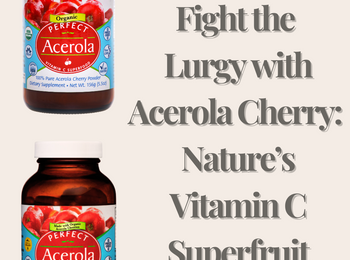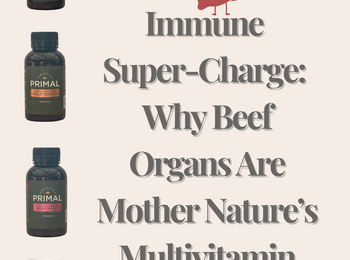Related Products
What Are Probiotics and Prebiotics?
Probiotics and prebiotics are essential in maintaining a healthy gut and supporting overall well-being. Understanding the differences and benefits of these two components can help you make informed decisions about incorporating them into your diet for optimal health.
What Are Probiotics?
Probiotics are live microorganisms, such as bacteria and yeast, that offer health benefits when consumed adequately. They help restore and maintain a healthy balance of gut bacteria, crucial for digestion, immunity, and mental health. Common sources include fermented foods like yoghurt, sauerkraut, kefir, and kombucha. Probiotics are also available as dietary supplements, often containing beneficial strains like Lactobacillus, Saccharomyces Boulardii, Bacillus coagulans and Bifidobacterium.
Some probiotics need to be kept in the fridge and others ( Saccharomyces Boulardii, Bacillus coagulans) are shelf-stable and activate once ingested.
These microorganisms can improve digestion, alleviate irritable bowel syndrome (IBS) symptoms, and boost immune function. Additionally, some studies suggest probiotics may play a role in mental well-being, as the gut-brain axis links gut health to mood regulation.
How the Gut Microbiome Affects Our Mood, Brain and Behaviour
Recent research shows that the gut microbiome has a significant influence on mood and behaviour through the microbiota-gut-brain axis. This connection allows bacteria in the gut to communicate with the brain, affecting neurotransmitter production, such as serotonin and dopamine, which are crucial for regulating mood and emotions. Variations in gut bacteria can impact how these neurotransmitters are produced, potentially influencing mental health outcomes, including stress, anxiety, and depression.
Additionally, gut bacteria can affect the immune system and trigger inflammation, which is linked to mood disorders. Short-chain fatty acids (SCFAs) produced by gut microbes have been found to reduce neuroinflammation and improve brain function, further supporting the critical role of the microbiome in mental health.
These insights highlight the potential of dietary changes and probiotic supplements as tools to improve mental well-being by fostering a healthier gut environment. For individuals experiencing anxiety or depression, targeting the gut microbiome through prebiotics and probiotics may offer new avenues for treatment and overall mental health support.
What Are Prebiotics?
Prebiotics are non-digestible fibres that feed the beneficial bacteria in your gut. Prebiotics indirectly support gut health and digestion by promoting healthy bacteria growth. Common prebiotic-rich foods include bananas, garlic, onions, asparagus, oats, and artichokes.
Unlike probiotics, prebiotics are not living organisms but are essential for fostering a balanced gut microbiome by feeding the "good" bacteria. Prebiotics have been linked to improved digestion, reduced inflammation, and better absorption of minerals such as calcium and magnesium.
The Synergy Between Probiotics and Prebiotics
When consumed together, probiotics and prebiotics form a symbiotic relationship, enhancing each other's benefits. Prebiotics provide the fuel probiotics need to thrive, promoting a healthy and diverse microbiome. This combination is often called "synbiotics" and can further improve digestion, boost immunity, and contribute to mental well-being.
Health Benefits and Considerations
Incorporating probiotics and prebiotics into your diet can yield various health benefits, including improved gut health, enhanced immune function, and better weight management. Regular intake may help reduce bloating, improve bowel regularity, and support mental clarity.
However, it's essential to introduce these components gradually, as a sudden increase in prebiotic fibre may cause temporary gas or bloating. Most people tolerate probiotics well, but those with compromised immune systems or severe illnesses should consult their healthcare provider before using probiotic supplements.
In Simple Terms
In simple terms, probiotics are good bacteria that you consume to help keep your gut healthy. They’re found in things like yogurt and fermented foods.
Prebiotics are the food for these good bacteria, helping them grow and do their job better. Prebiotics are found in high-fibre foods like bananas, onions, and garlic
A Convenient Way to Get Both
Zesti™ Berry Addictive Daily Greens powder offers both probiotics and prebiotics in a single, convenient formula. Probiotics in the blend introduce beneficial bacteria to support gut health and immunity, while prebiotics, such as organic green banana starch, nourish these good bacteria, helping them thrive. This synergy promotes digestion, reduces bloating, and balances gut flora without the need to source multiple products. Whether added to water or smoothies, this easy-to-use powder makes achieving optimal gut health simple, supporting your daily wellness goals with every tsp!
Zesti™ Berry Addictive Daily Greens powder includes shelf-stable probiotics, specifically Saccharomyces boulardii and Bacillus coagulans. These strains remain dormant while on the shelf, ensuring long-lasting potency. Once ingested, they become active in the body, restoring gut balance and improving digestive health. Saccharomyces boulardii is known for helping with gut infections and regulating bowel movements, while Bacillus coagulans supports digestion and reduces bloating by producing beneficial lactic acid. Together, these resilient strains survive harsh stomach conditions and help maintain a healthy microbiome, delivering all the benefits of probiotics without refrigeration.
CLAIM YOUR DISCOUNT!
If you'd like to try Zesti™ and you'd love to save 10%, please use the code: PROANDPRE10
Limited to one-use per person and cannot be combined with other codes.
Conclusion
Probiotics and prebiotics are vital in maintaining a healthy gut and overall wellness. While probiotics introduce beneficial bacteria, prebiotics nourish and support their growth. Together, they help foster a balanced gut environment, improving digestion, immunity, and mental health.
Incorporate foods like yoghurt, kombucha, bananas, Zesti™ daily greens and garlic into your diet to benefit from these powerful nutrients. If you need additional support, consider high-quality supplements to complement your intake. As always, consult your healthcare provider to find the best approach for your needs.

References
https://www.mayoclinic.org/healthy-lifestyle/nutrition-and-healthy-eating/expert-answers/probiotics/faq-20058065#
https://www.medicalnewstoday.com/articles/323490
https://longevity.stanford.edu/lifestyle/2024/04/08/more-than-a-gut-feeling-how-your-microbiome-affects-your-mood/
https://www.frontiersin.org/journals/psychiatry/articles/10.3389/fpsyt.2024.1295766/full
https://www.psychologytoday.com/us/blog/advancing-psychiatry/202405/depression-the-gut-microbiome-and-vitamins
Disclaimer: this article/post is for informational purposes only and not to be taken as advice. One must seek proper professional advice from their trusted health practitioner.





